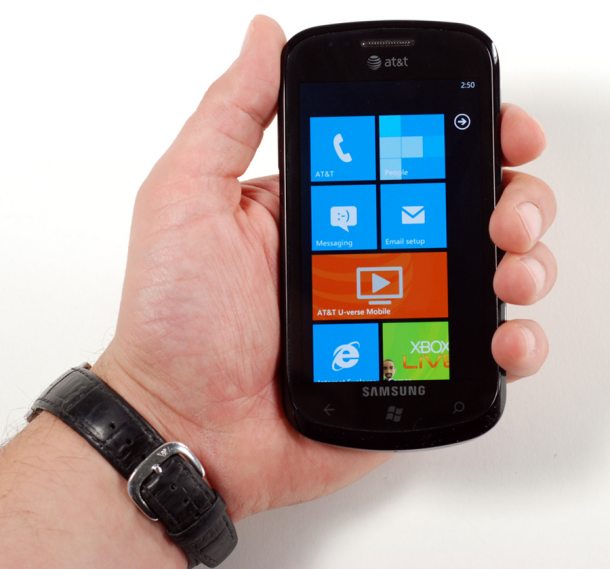Microsoft: A big ship at crossroads; What else is new?

Predicting the demise of Microsoft is almost a national pastime in the tech sector and the last 24 hours has sparked a good bit of debate. Simply put, Microsoft is a massive ship that isn't nearly as nimble as it should be. But that doesn't mean it's sinking by any stretch.
The most recent discussion around Microsoft was sparked by a Goldman Sachs research note. In a nutshell, Goldman Sachs noted that Microsoft missed the tablet curve, faces the down slope of a Windows 7 upgrade pop and faces multiple challenges. According to Goldman Sachs 2011 is going to be a rough year for Microsoft.
That note was so convincing that Sam Diaz put on his GApple (Google + Apple) goggles and likened Microsoft to the Titanic. If Microsoft is sinking it's only because the hull can't carry all the cash the software giant rakes in.
In a case of nice timing, the New York Times reports that Microsoft will demo new slate PCs and Windows 8 functionality at CES 2010 next month. Microsoft has been talking about tablet PCs at CES for more than a decade yet Apple ran off with the market courtesy of the iPad. Now Android tablets are in on the act. Will Microsoft finally deliver a credible tablet?
The software giant's well-documented issues with the tablet and smartphone markets are causing a lot of angst. Goldman Sachs isn't the only research firm sounding alarm bells. Some analysts such as Stifel Nicolaus' Doug Reid say that the mobile wars have been decided in favor of Android and Apple's iOS. In May, Barclays Capital analyst Israel Hernandez said Microsoft's mobile miscues remain a big worry for the company.
All of that's true, but Microsoft has plenty of cash for reinvention. In fact, the company has lost billions of dollars on Internet ventures, but is showing some promise with Bing. Other moneypits that worked out for Microsoft include the Xbox. Bottom line: Microsoft's dollars buy it some wiggle room.
That said there are real worries for the company. Here's the Microsoft ledger as I see it.
Negatives:
Tablets. The topic du jour for Microsoft is whether it can create an iPad rival. What's maddening about Microsoft's strategy can be summed up with one product: Microsoft 7. Microsoft insists on Windows 7 slates when it has a better alternative in house with Windows Phone 7. Here's the deal: Windows 7 is just too large to be a tablet OS. Windows Phone 7 looks as if it were built for tablets. So what if Microsoft doesn't conquer the smartphone market with Windows Phone 7? It has plenty of time to make Windows Phone 7 a real tablet player. The unfortunate thing is everyone on the planet sees that Windows Phone 7 could be powerful with a tablet. Microsoft has its blinders on.
Microsoft can't make money online. It's staggering how much money Microsoft has lost online. Perhaps Bing and a search partnership with Yahoo changes the equation.
The software business model is shifting. Microsoft's historical cash cows---Windows and Office---are under fire from cloud computing. Microsoft, along with Oracle, SAP and other software supervendors, need to shift their focus from selling products to services. This cloud shift means new capital costs, pricing models and cannibalizing on-premises products. There will be big winners and some spectacular losers here.
Those aforementioned items form the crux of the "Microsoft is doomed" argument. Now for the other side of the ledger.
Positives:
Cloud computing: Microsoft has seen the shift to the cloud and has an ambitious strategy with its Azure effort. Office is moving to the cloud and Microsoft has a massive cloud footprint. The company articulated the cloud strategy in July at its analyst meeting. Here's how Gartner sizes up the cloud players in terms of emphasis (capabilities still being built out).As you can see, Microsoft is one of the few capable of covering all the cloud bases. Note that Salesforce.com in recent days has moved to cover more bases than represented in that Gartner chart from October. Also: Office 365: Future, present, past and Mary Jo Foley Webcast
Windows is still formidable. Despite all the yapping about cloud operating systems and encroachment from Apple, Windows powers most of our computing devices excluding smartphones. That upgrade cycle will continue for the enterprise for at least another few years. There is a big question about whether Microsoft can do something with Windows 8 to entice upgrades. Personally, I assume I'll be on Windows 7 for another decade---much like I was with XP.
Office will remain the productivity suite for the enterprise. Sure, there are a lot of folks trying to attack Office, but anyone that has had to swap PowerPoint presentations and Excel spreadsheets around knows that there are serious convenience costs to switching.
Microsoft's server and tools unit is strong. Amid all the yapping about the demise of Microsoft, folks forget items like SQL, SharePoint, server software and virtualization tools. Microsoft remains strong in the business market, especially in the coveted small to mid-sized markets.
Kinect. Microsoft has proven with the Xbox and then Kinect that it can play the consumer game well. Xbox Live is a big community and commerce engine. It's unclear why Microsoft can produce hits in one area and fumble in others. But overall, Kinect positions Microsoft well as a player in your living room.
Research. Microsoft Research is one of the few "old school" research organizations. That research portends future innovation ahead. Now Microsoft may not capitalize on its research, but I'd always rather have more intellectual property than none at all.
Cash. Microsoft has $44.1 billion in cash, cash equivalents and short-term investments. If Microsoft didn't pay a dividend it would still be the richest company on the planet. That war chest can buy a lot of reinvention.
Bottom line: Microsoft is at a crossroads to some degree. Then again, it always has been.